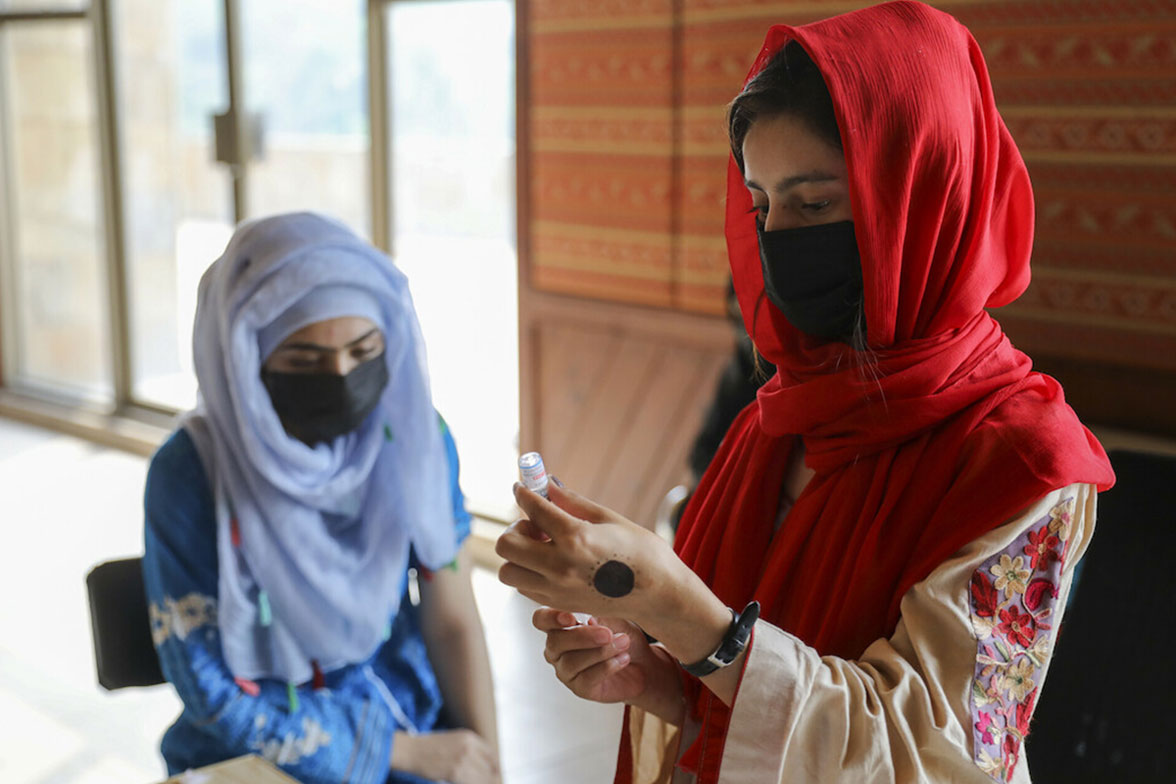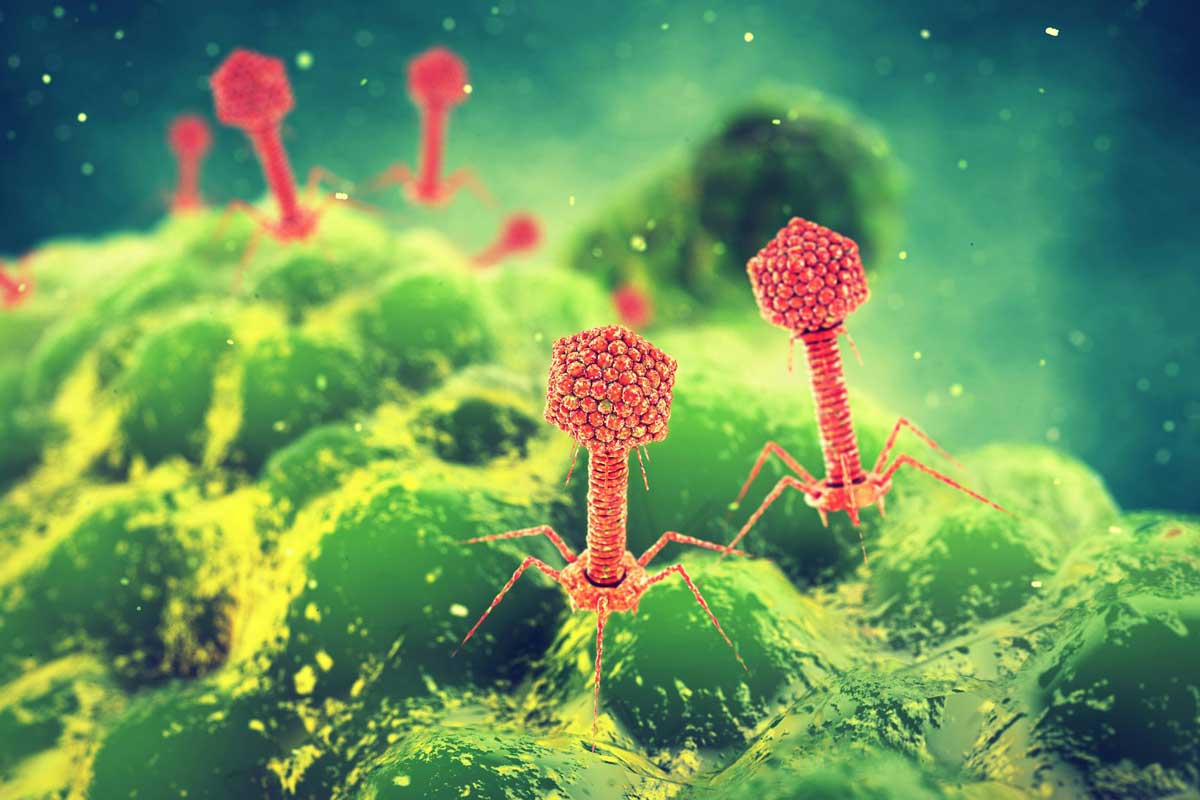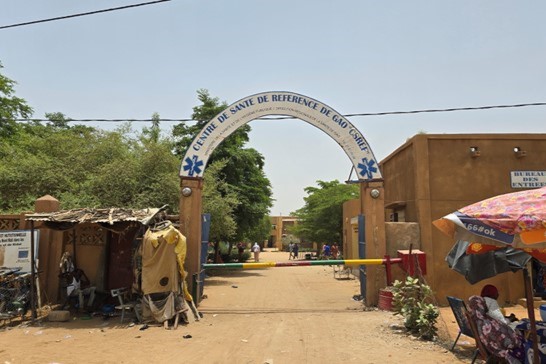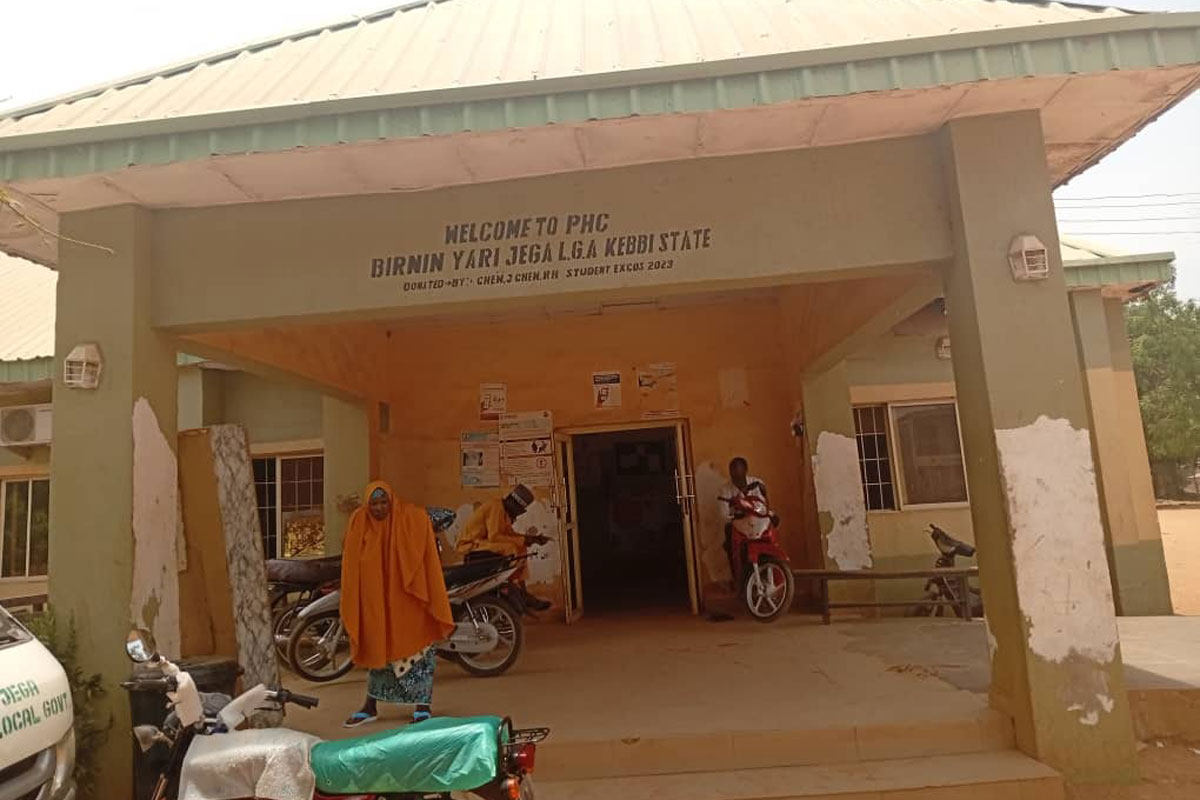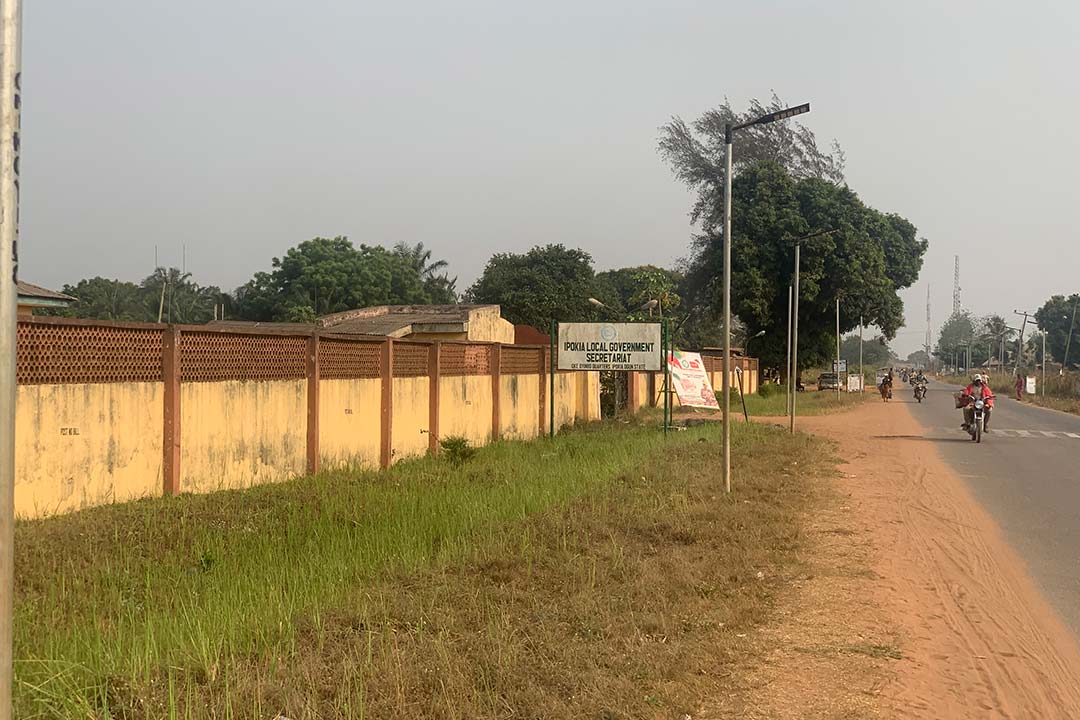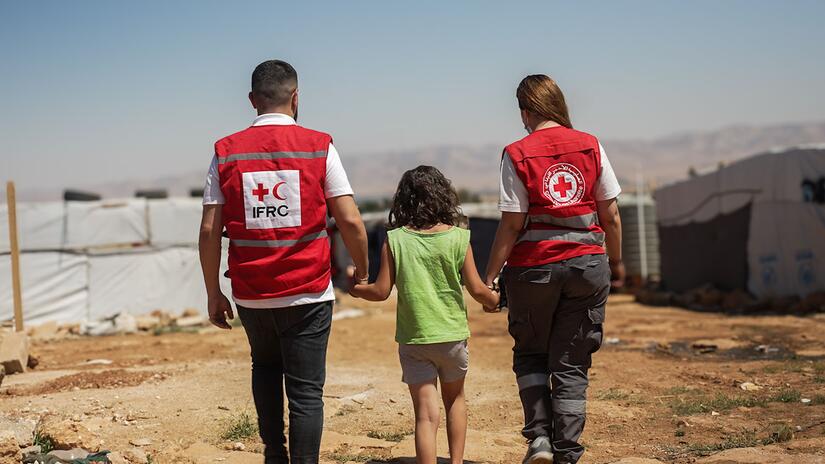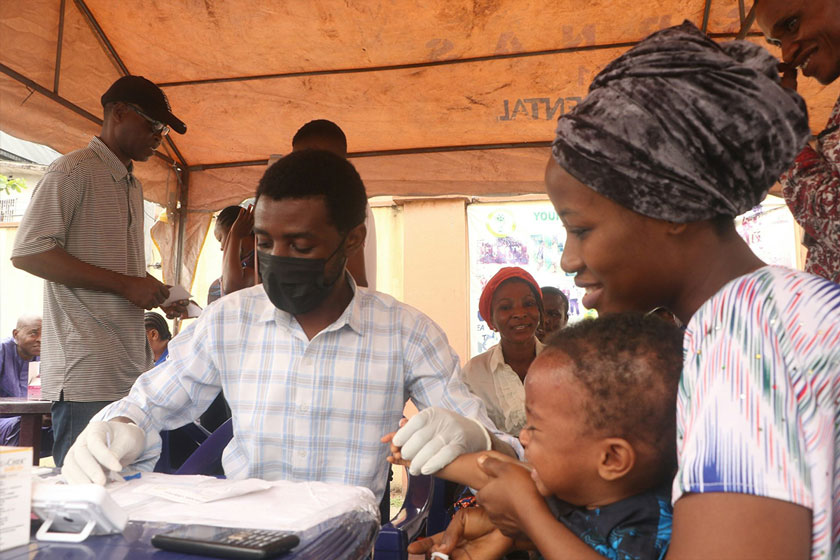In northern Nigeria, resettled farmers are giving back to tackle malnutrition
Amid a growing hunger crisis, former internally displaced persons (IDPs) are sharing their harvest.
- 30 July 2024
- 8 min read
- by Jesusegun Alagbe
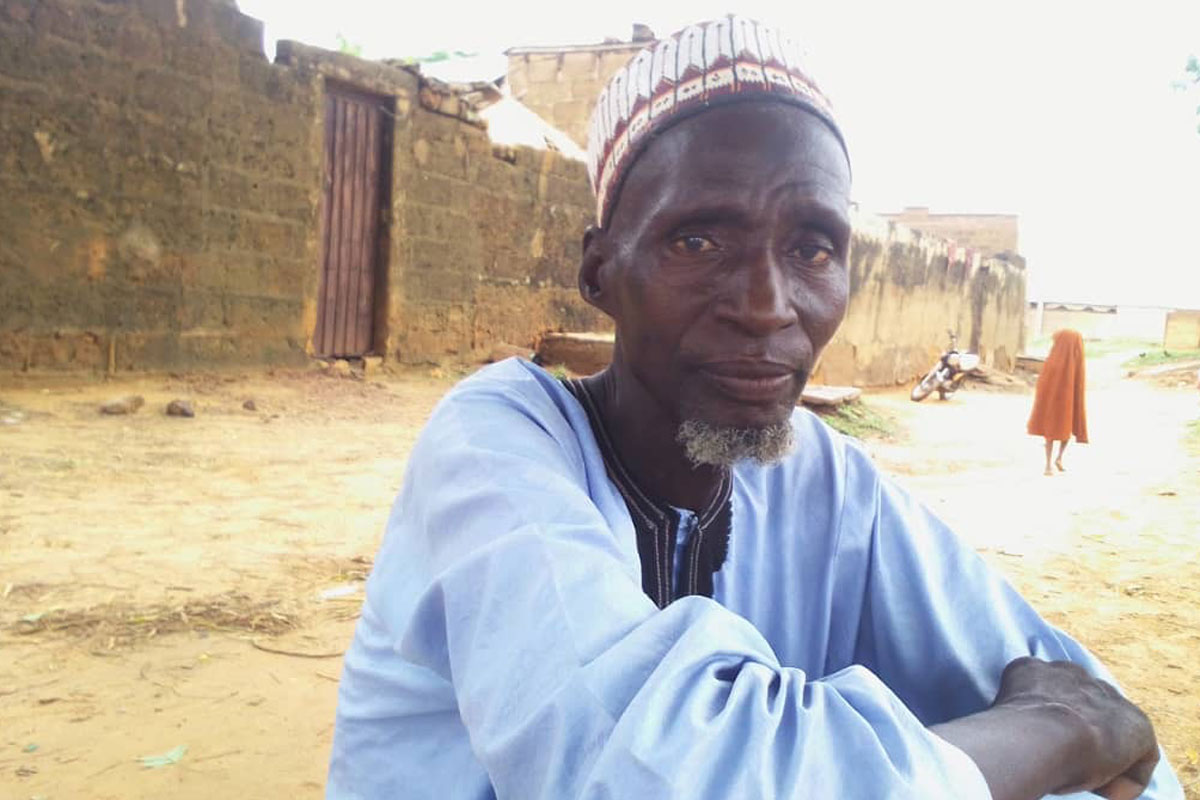
Three years ago, cattle farmer Ardo Bako was displaced from his home in Tulluwa, Sokoto State, in northwestern Nigeria, when bandits invaded the village. Along with many of his neighbours Bako escaped to Rabah, the headquarters of Rabah Local Government Area (LGA).
“When I came to Rabah, l had some animals with me, but I used them to get a house and farmlands to resettle myself,” he recalls. “I thank God that I can farm here. I have four farmlands, where I cultivate different types of crops, including millet and maize,” Bako said.
“There is a serious hunger crisis. We are out of food for the over 4,000 displaced persons living here, including over 500 children. Now, we go to farms to collect food from resettled farmers who are willing to assist us.”
- Barka Musa, secretary of EYN IDP camp, Wulari, Maiduguri
“The life here in Rabah is not easy too, but we are managing. There is still danger here because there are bandits here as well. It’s only that here is a bit safer than Tulluwa.”
Today, he feels grateful – and one of the blessings Bako says he counts is his ability to be able to give out a portion of his harvest to those IDPs who have yet to resettle.
“I give out a minimum of three mudus [a popular unit of measuring foodstuff in Nigerian markets; 1 mudu approximates 1.2 kg] to the families of some of our people who are internally displaced. Some are in dire need and they come to my house for help. These are trying times for them and I’m grateful that I can be of help to them because I understand what they are going through. Some were farmers and cattle rearers like me, but their livelihoods were taken away from them due to insecurity,” Bako said.
He said that he has the intention of reaching more families suffering from hunger so long as he can cultivate more farmlands and increase his harvest.
“I want to give out more, but first, I need fertiliser and more capital to buy camels and cows to cultivate my farms. If I get these, and my harvest increases, I will surely do more to help our people,” Bako said.
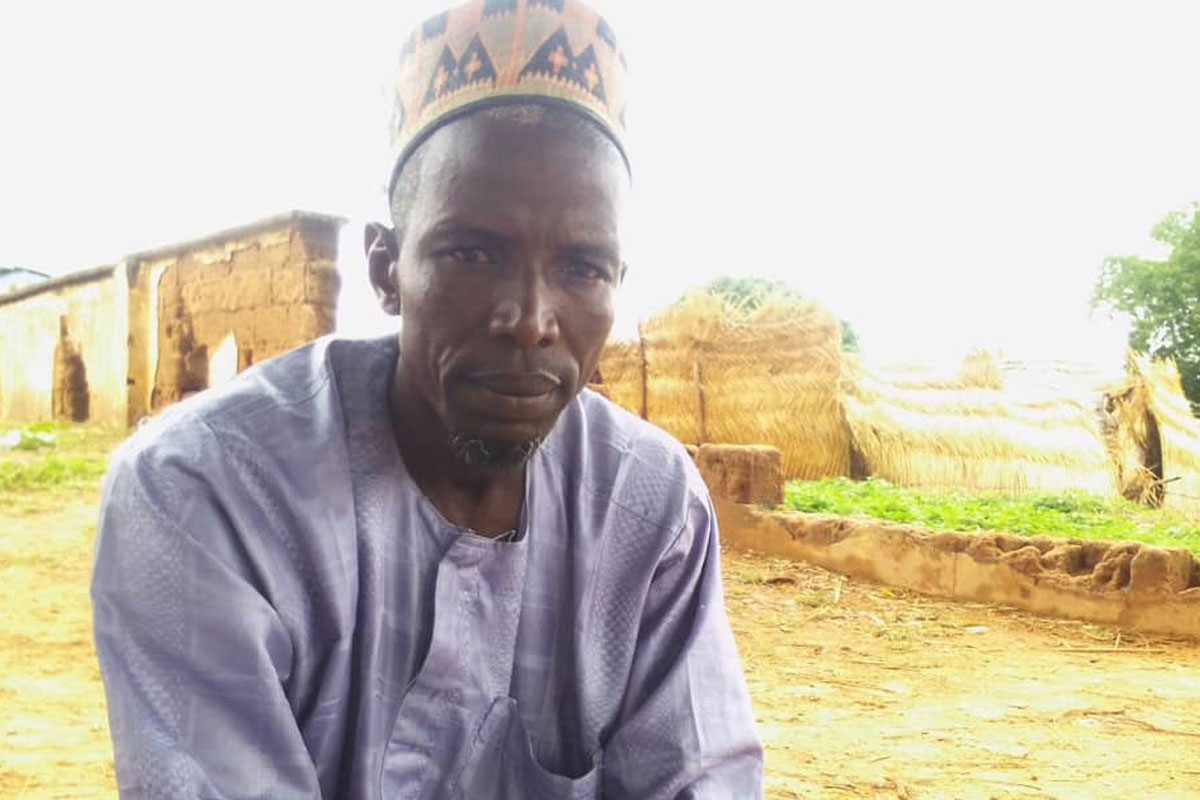
The hunger crisis
Over 26.5 million Nigerians are projected to experience high levels of food insecurity in 2024, according to a report by the United Nations’ Food and Agriculture Organization (FAO). Of this figure, about 9 million children are at risk of suffering from acute malnutrition while 2.6 million children could face severe acute malnutrition and require critical nutrition treatment.
FAO said the hunger crisis is driven by several factors such as climate change impacts and ongoing conflicts, particularly in the north, where terrorism, armed banditry and kidnappings in states like Borno, Adamawa, Yobe, Kaduna, Sokoto, Katsina, Benue and Niger are preventing farmers from going to their farms, thereby affecting food availability and access.
“Thankfully, we have been getting support from other people who were able to return to their farms. They give us portions of what they harvest. No doubt, their support has made a significant impact in keeping our bodies and souls together.”
- Raha Ibrahim, displaced from Tabanni village in Sokoto State
Around 1.1 million people were displaced by violence in north-central and north-west Nigeria by the end of 2023, according to a July report by the International Organization for Migration (IOM). In the same period, over 2.3 million were displaced in the north-east.
Apart from climate change and insecurity, skyrocketing inflation – which hit an all-time high of 34.19% in June – has seen the prices of food and essential non-food commodities go through the roof. Food inflation is currently over 40%, according to the National Bureau of Statistics.
The end of a fuel subsidy scheme in May 2023 and the floating of the Naira were both policies which analysts have said diminished the purchasing power of many households.
In June, Médecins Sans Frontières said it witnessed a spike in the number of admissions of severely malnourished children with life-threatening complications in its inpatient facilities in northern Nigeria – twice the number of admissions in some locations in the previous year. Two months earlier, the global charity said its medical team in Maiduguri, Borno State capital, admitted 1,250 severely malnourished children with complications, twice as many as in April 2023.
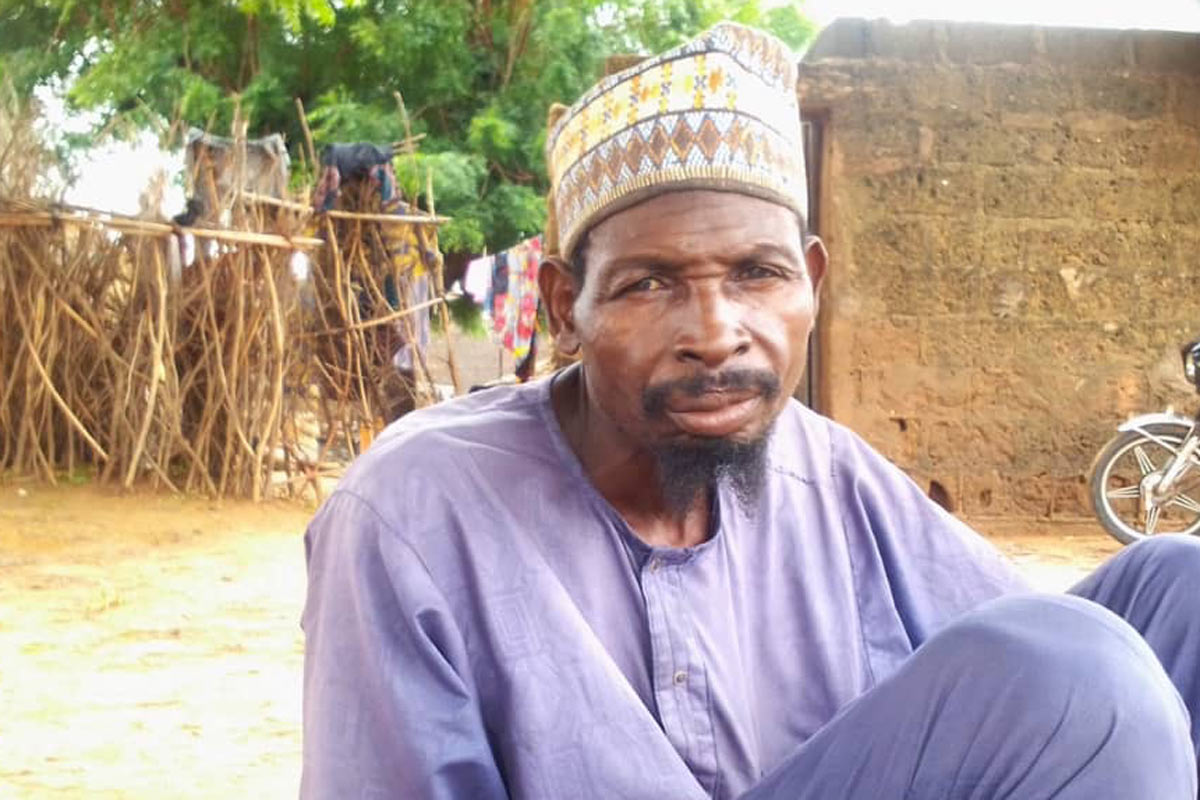
Helping hands
Being a former displaced person and fully aware of the hunger crisis many IDPs face, Aliyu Halilu is another resettled farmer going out of his way to donate food to the displaced. The 60-year-old is the head of Tabanni village in Rabah LGA.
Halilu, who was kidnapped by bandits in 2021, said he spent 35 days in captivity. He had to pay 3 million naira (US$ 1,900) and give up his only motorcycle before the bandits released him. By the time he got back home, the gang had also rustled his cattle, leaving him empty-handed.
“Now resettled in Rabah, I am relieved I could return to farming, though it’s not on a scale as I was used to when I was in Tabanni, where one of the farmlands that I owned spanned more than five hectares. At Rabah here, I cultivate 10 farmlands and as a community leader, I can’t abandon my people who have yet to resettle. So I donate part of my harvest to such people. I give out from my maize, beans, millet and guinea corn,” Halilu said.
“I intend to increase what I’m giving out if God increases my harvest. All I need to boost farming is funding to get fertiliser, camels and cows to cultivate my farmlands because the bandits stole all the animals l possessed,” he said.
Ummaru Bagobiri, from Taguwa village, said he also donates a portion of his crops to his people who live in an IDP camp in Rabah town.
“I see my gesture as nothing, because it is an instruction in my religion to give alms. Anytime I harvest, I give out a part to my relatives and IDPs who are in dire need. It is not good to be eating food while your neighbour is hungry. Some of them come to my house to collect food,” he said.
Have you read?
Another farmer, Ruwace Rugga, from Dolewu village, said he would donate to people as soon as he starts harvesting, as he has yet to fully resettle. The 55-year-old, who said he has two wives and 17 children, said he cultivates only one farm currently due to the lack of resources to cultivate all of his five farms.
“Life here is not easy because we are starting afresh, after losing all we had to bandits. For now, it's hard for me to give something out of what I'm harvesting to other displaced persons, considering that what I'm getting is not even enough for my family. However, l have the intention of helping my fellow IDPs when the situation changes for the better,” Rugga said.
In some locations in northern Nigeria where resettled farmers are lending a hand, the beneficiaries said such gestures have been helpful amid the malnutrition crisis.
“Immunity is a function of nutrition. If a child is malnourished, it will lower their immunity to fight even simple infections.”
- Ayodele Ojuawo, professor of paediatrics
Barka Musa, the secretary of the EYN IDP camp in Wulari, Maiduguri, Borno State, said he and some officials of the camp regularly journey to farms to collect food from resettled farmers for the displaced persons.
“There is a serious hunger crisis. We are out of food for the over 4,000 displaced persons living here, including over 500 children. Now, we go to farms to collect food from resettled farmers who are willing to assist us. To get to the farms takes us at least an hour on a motorcycle. We are calling for help because it looks as if we are neglected,” he said.
Sixty-year-old Raha Ibrahim, who lives in an IDP camp in Rabah in Sokoto State, said: “Since four years ago when we were displaced from Tabanni village, we haven't been able to return to cultivate our farms. But thankfully, we have been getting support from other people who were able to return to their farms. They give us portions of what they harvest. No doubt, their support has made a significant impact in keeping our bodies and souls together.”
Suleiman Garba said if not for the food donated to them by their resettled farmers, they would have suffered a great deal.
“They [resettled farmers] always assist us with what they have and we are very happy. We really appreciate it. Of course, I also look forward to returning to farming soon so I can join in helping others,” he said.
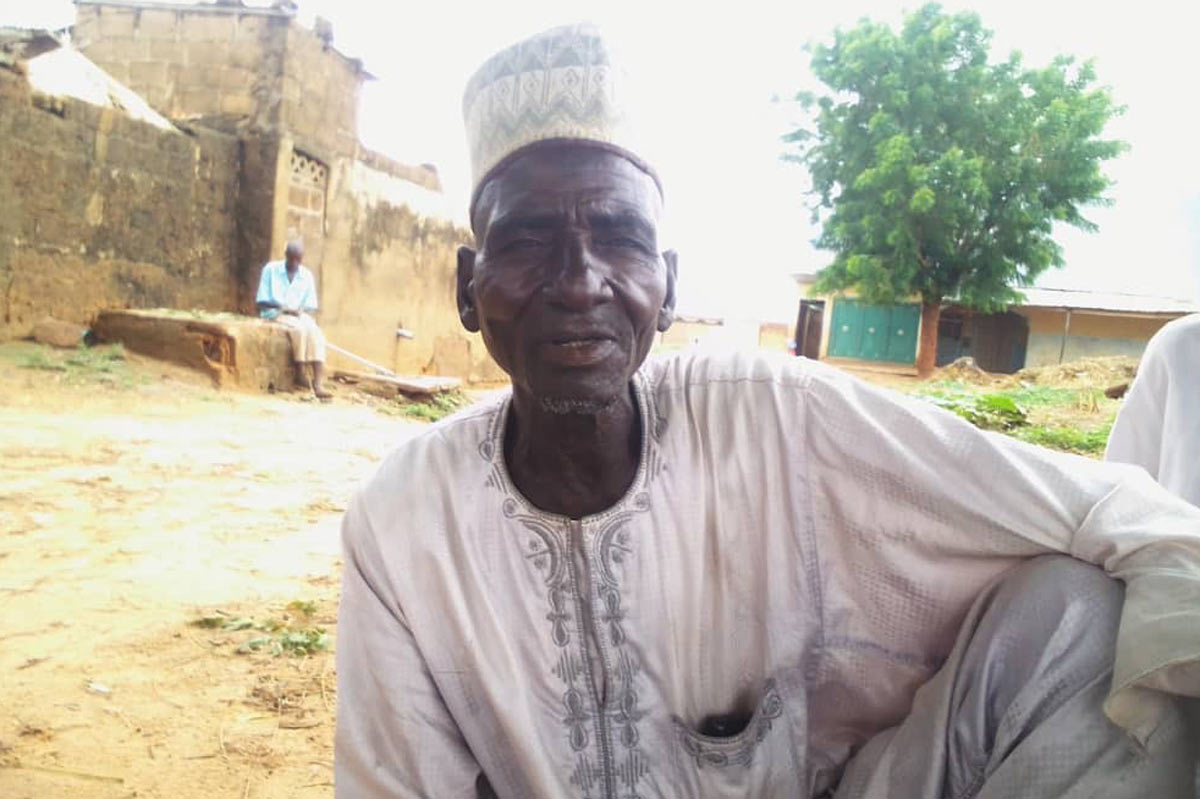
Time for action
Ayodele Ojuawo, a professor of paediatrics at the College of Health Sciences, University of Ilorin, in north-central Nigeria, said the time is now for all stakeholders to join hands to fight the malnutrition crisis in the north.
Ojuawo said more children will continue to suffer from vaccine-preventable diseases if they are not properly fed, adding that good nutrition boosts immunity. When good nutrition is combined with immunisation, he said the children’s immunity will increase.
“Immunity is a function of nutrition. If a child is malnourished, it will lower their immunity to fight even simple infections,” he said.
Ojuawo advocates that the government must tackle the problem of insecurity that is preventing farmers from going to their farmlands.
“There are different facets regarding what needs to be done to tackle the malnutrition crisis in the country. One of the solutions is to enlighten parents on how to combine local food materials and get the best nutrients out of them. However, this may not be achieved if people can’t go to their farms to grow crops due to insecurity.”
More from Jesusegun Alagbe
Recommended for you
